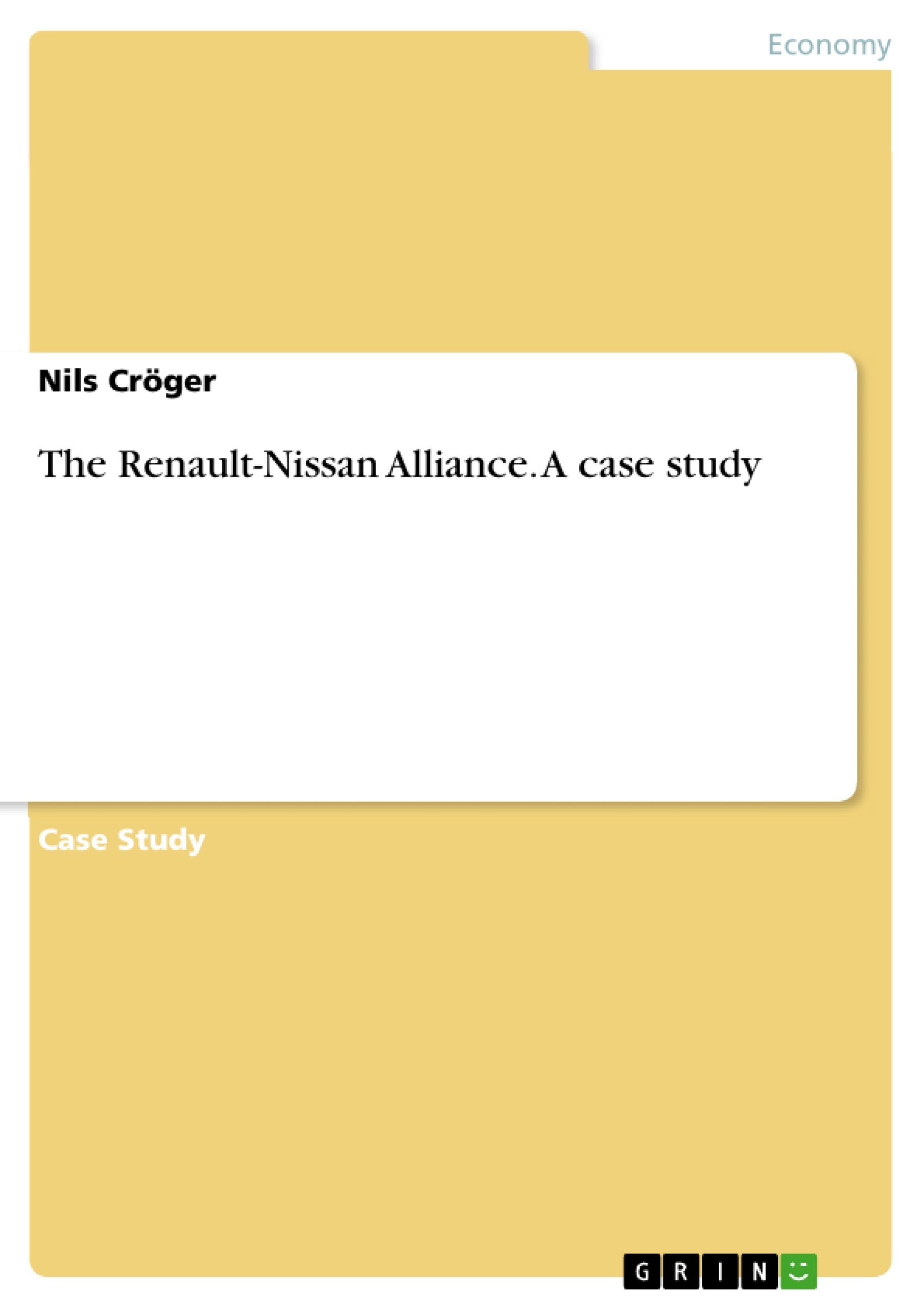This case study focuses on the strategic alliance of Renault and Nissan. It examines the history of the partnership and the question why the cooperation of the two companies from vastly different cultures was as successful.
The story of Renault is first the story of a man with an unusual destiny. The adventure began on December 24, 1898. At this time Louis Renault took up a challenge to drive his A-type Voiturette up the steep Rue Lepic in Paris. Founded in 1898 by Louis Renault Voiturette, the company quickly became the leading industrial manufacturer in France. The mechanical, design and stylish innovation make it to a famous brand. Renault as a company has contributed immensely to the development of the automobile industry all over the world. The Renault company employs over 166.000 people across the globe with production plants in Europe and outside Europe (www.renault.com, 2015).
Nissan was jointly established in December 1933 in Japan as Jidosha Seizo Co., Ltd by Nihon Sangyo Co., and Tobata Imono Co. to manufacture and sell Datsun cars and parts. In June 1934, the company was bought by a new sole owner; Nihon Sangyo, who later changed the company’s name to Nissan Motor Co., Ltd. The company works with manufacturing, sales and related business of automotive products, industrial machinery and marine equipments. The Nissan company employs over 133.000 people (Nissan facts booklet found on www.nissan-global, 2015).
Table of Contents
- Introduction
- Case Study of Renault-Nissan Alliance
- Introduction
- Strategic alliances – definition, motives and goals
- Application of Organizational Development (OD) – Renault-Nissan Case
- Conclusion
- References
Objectives and Key Themes
This case study explores the Renault-Nissan Alliance, a strategic partnership between two prominent automotive companies, to analyze the motives, objectives, and impact of this alliance. It examines the application of organizational development (OD) principles in managing the alliance and its contribution to the success of both companies.
- Strategic Alliances: The case study examines the concept of strategic alliances, their motives, and objectives.
- Organizational Development (OD): It explores the application of OD principles in managing the Renault-Nissan Alliance, focusing on aspects like collaboration, change management, and cultural integration.
- Global Automotive Industry: The case study analyzes the competitive dynamics of the global automotive industry and the challenges faced by companies like Renault and Nissan.
- Cross-Cultural Collaboration: It investigates the complexities of cross-cultural collaboration within the alliance, highlighting the unique challenges and opportunities.
- Impact and Sustainability: The case study assesses the impact of the alliance on the growth and profitability of both companies, exploring its long-term sustainability and potential for future success.
Chapter Summaries
The introduction provides a brief overview of the Renault and Nissan companies, highlighting their individual histories and key characteristics. It sets the stage for the case study by introducing the context of the alliance and its significance in the global automotive industry.
The "Strategic alliances – definition, motives and goals" section delves into the concept of strategic alliances, defining their nature and exploring the motivations and objectives that drive companies to form such partnerships. It examines the various types of alliances and the potential benefits and challenges associated with them.
The "Application of Organizational Development (OD) – Renault-Nissan Case" section applies the principles of organizational development to the Renault-Nissan alliance. It analyzes how OD practices have been utilized to address the challenges of integrating two distinct corporate cultures, managing change, and fostering collaboration between the two companies.
Keywords
The key focus of this case study is on the Renault-Nissan Alliance, strategic alliances, organizational development (OD), cross-cultural collaboration, global automotive industry, competitive advantage, and profitability.
- Citation du texte
- Nils Cröger (Auteur), 2015, The Renault-Nissan Alliance. A case study, Munich, GRIN Verlag, https://www.grin.com/document/318292




